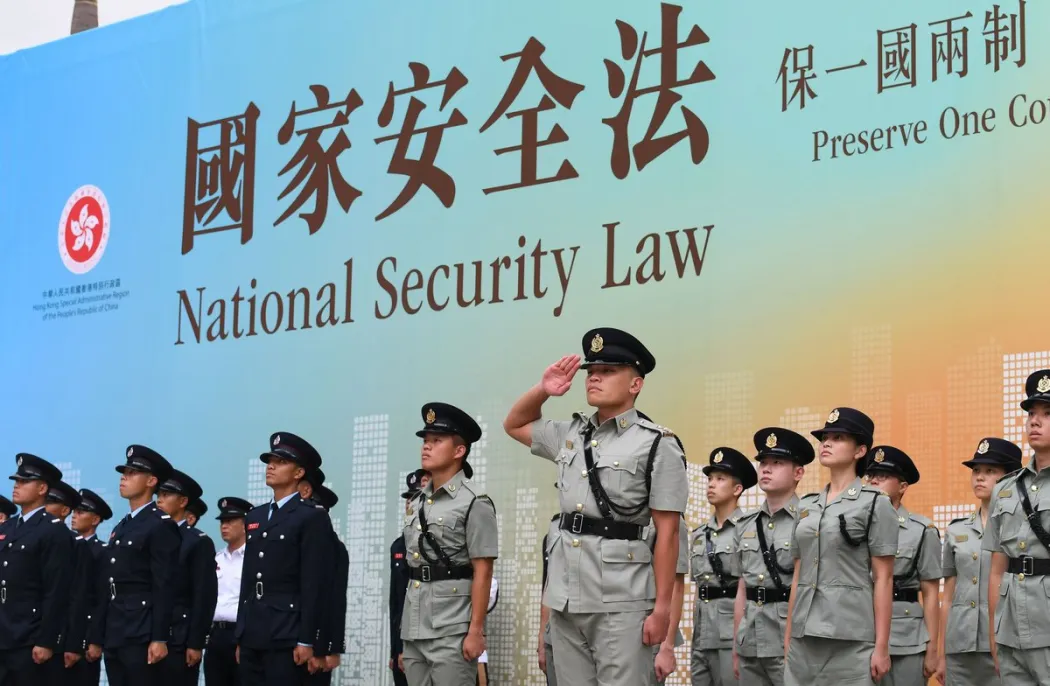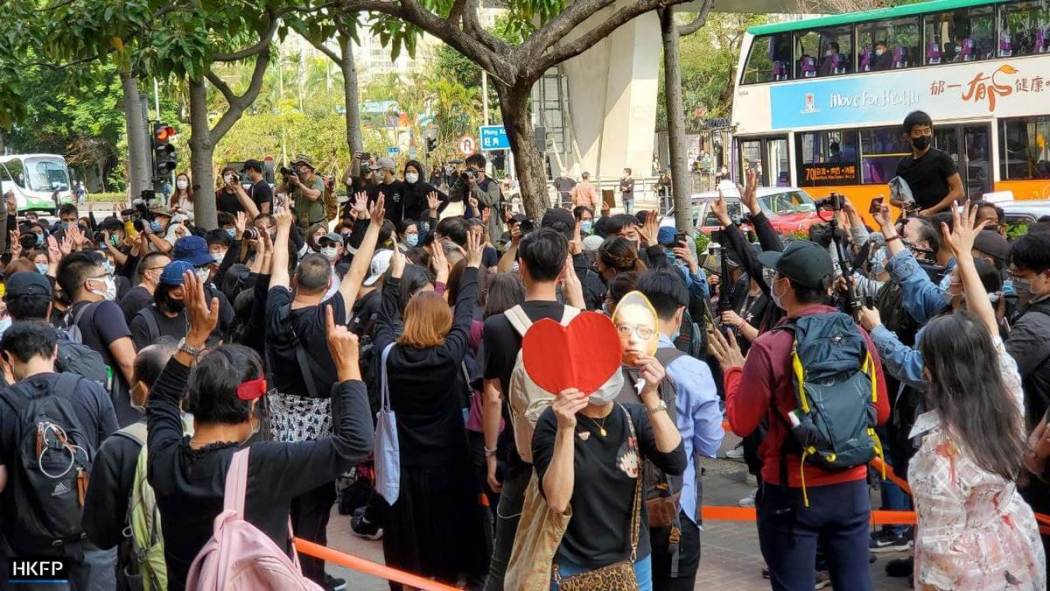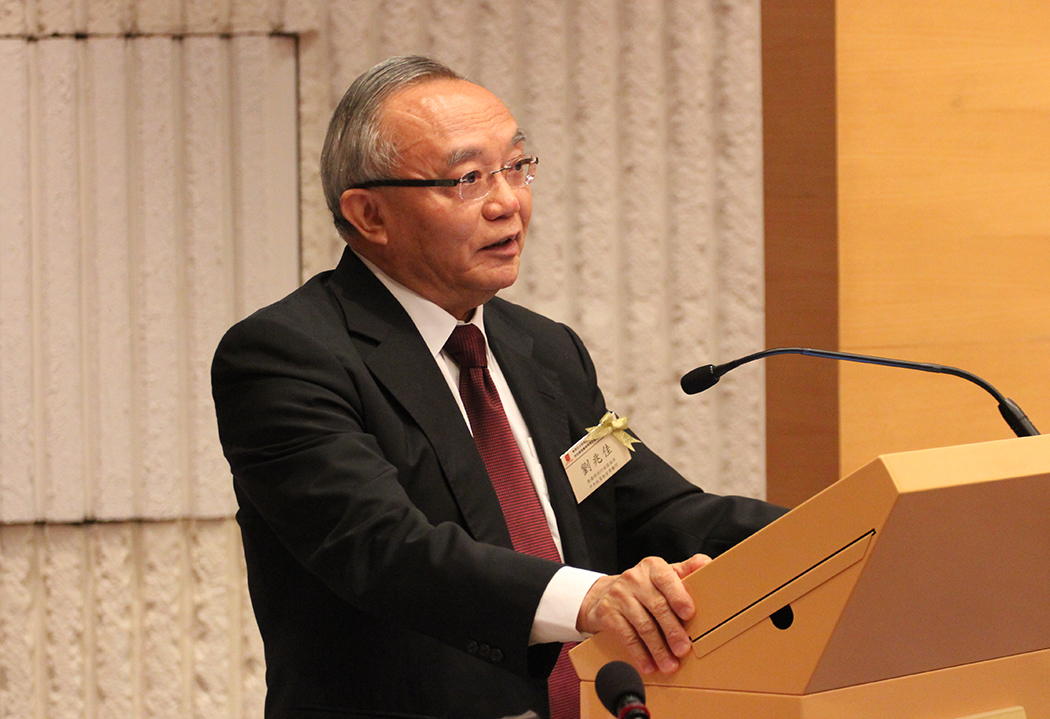The Hong Kong government will undertake five areas of national security work as laid out by a top Chinese official in order to deepen the implementation of the Beijing-enacted legislation, Chief Executive Carrie Lam has said.

Hong Kong top-level officials including Lam, Chief Secretary John Lee, China Liaison Office director Luo Huining as well as other pro-Beijing figures attended a national security law seminar organised by the Chinese Association of Hong Kong and Macao Studies on Friday to commemorate its first anniversary. They were addressed by the director of China’s Hong Kong and Macau Affairs Office Xia Baolong via video link.
Lam said that Xia “highly commended” the work of the city’s national security committee under her leadership and highly praised the city’s police force for “sacrifices” they endured when implementing the security law.

In June 2020, Beijing inserted national security legislation directly into Hong Kong’s mini-constitution – bypassing the local legislature – following a year of pro-democracy protests and unrest. It criminalised subversion, secession, collusion with foreign forces and terrorist acts, which were broadly defined to include disruption to transport and other infrastructure. The move gave police sweeping new powers, alarming democrats, civil society groups and trade partners, as such laws have been used broadly to silence and punish dissidents in China. However, the authorities say it has restored stability and peace to the city.
The 2019 unrest was a “valuable lesson that allowed the whole of Hong Kong to see that national security loopholes must not be tolerated,” Lam said, citing Xia, but with the city’s security situation now brought under control, she said the Chinese official had “high expectations” for the local government moving forwards.

People who are “anti-China and causing chaos in Hong Kong” have either disbanded their organisations or left the city, Chinese National People’s Congress representative Maria Tam recalled Xia as saying, which is conducive to resuming normality and security in the city.
Dozens of civil society groups have halted their operations and most of the legislative opposition has resigned, are behind bars, or have self-exiled abroad.
Tam said Xia saw from petition activities that Hongkongers support the national security law.
Five areas of work
During his address, the Chinese official raised five work demands for the Hong Kong government, the chief executive said. “We first need to deepen the national security law’s implementation in Hong Kong in order to meet these expectations,” Lam said.
Among them, Lam recalled Xia as saying that the government must “do a proper job” in national security cases and bring people suspected of violating the security law to justice.

A group of 47 democrats, as well as the founder and top executives at pro-democracy newspaper Apple Daily have been charged under the law. Most of them were not granted bail as they await trial. Meanwhile, the first security law trial against a protester who allegedly rammed a motorbike into police officers is due to conclude next week.
Xia said the city must also continue improving the legal system to safeguard national security, which includes preparing to legislate the local, Basic Law security legislation and making improvements to other laws, such as the anti-doxxing law gazetted on Friday.
The government should increase its “guidance and management” of schools, universities, social organisations, social media and the media, as Article 9 of the security law requires. It must also step up education and awareness of the law, as per Article 10.
Finally the government is also expected by Xia to “do a good job” in the three upcoming elections for the election committee, legislature and the next chief executive by ensuring proper gatekeeping during the election candidates’ eligibility reviews. The election system has been revamped to introduce several layers of candidate vetting.

Pro-Beijing veteran Lau Siu-kai of the Chinese Association of Hong Kong & Macao Studies said it could be expected that contenders for upcoming elections will see a “stringent” selection process. “[Xia] clearly said it is imperative not to let any person who is ‘anti China and causes chaos to Hong Kong’ to be part of the city’s governance,” he said.
Xia also said that, despite all the criticism and sanctions imposed by the West on China and Hong Kong, it will not deter the central government from executing “One Country and Two Systems” faithfully, according to Lau.
Support HKFP | Policies & Ethics | Error/typo? | Contact Us | Newsletter | Transparency & Annual Report | Apps
Help safeguard press freedom & keep HKFP free for all readers by supporting our team

latest national security stories
Support HKFP | Policies & Ethics | Error/typo? | Contact Us | Newsletter | Transparency & Annual Report | Apps
Help safeguard press freedom & keep HKFP free for all readers by supporting our team

LATEST FROM HKFP
HKFP has an impartial stance, transparent funding, and balanced coverage guided by an Ethics Code and Corrections Policy.
Support press freedom & help us surpass 1,000 monthly Patrons: 100% independent, governed by an ethics code & not-for-profit.






























